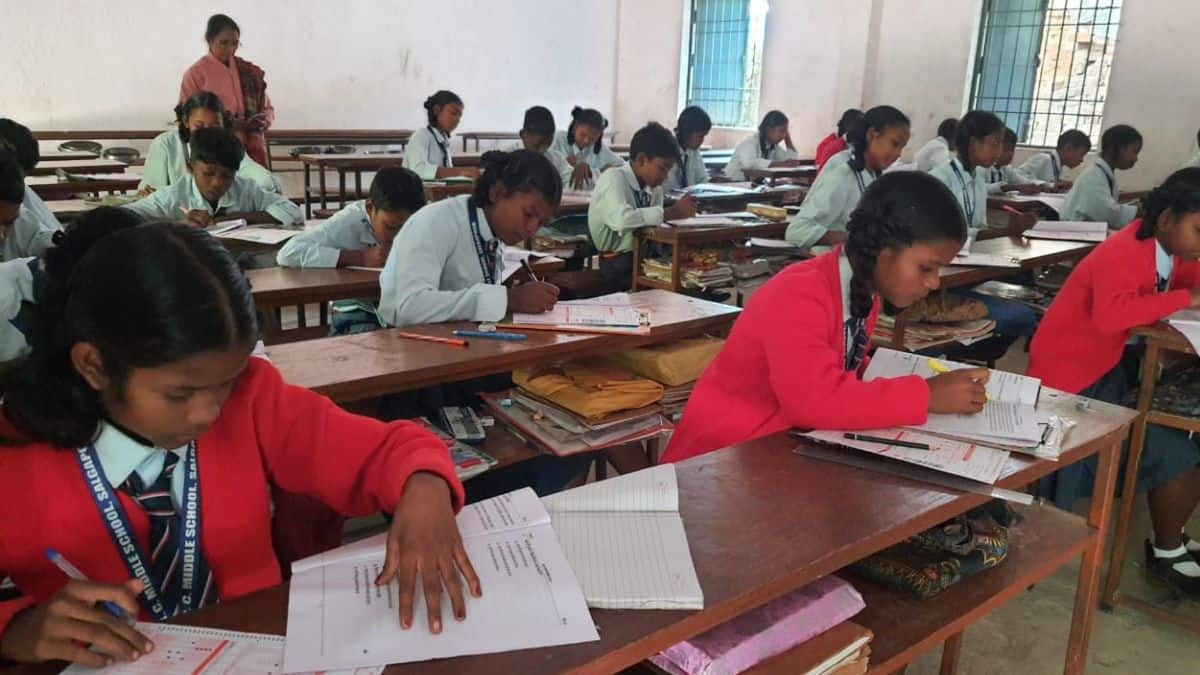Board Exams 2026: NCERT PARAKH forms expert committee to standardise Class 10, 12 certificates
Shradha Chettri | October 13, 2025 | 12:47 PM IST | 3 mins read
NCERT board exam SOP to ensure all school boards comply with RTE Act, NCF and NCTE norms; aims to provide students level-playing field against CBSE in college entrance exams
CBSE Class 10th Syllabus 2025-26
Students can access the subject-wise CBSE Class 10 syllabus for the 2025–26 academic session.
Check Now
PARAKH, an independent assessment body under National Council for Educational Research and Training (NCERT) has constituted an expert committee to frame Standard Operating Procedure (SOP) to grant equivalence to Class 10 and 12 certificates across all boards.
CBSE Class 10th: Admit Card | Exam Calendar | Syllabus 2025-26
CBSE Class 10 PYQ's: Hindi | English | Science | Math-Basic | Math- Standard
CBSE Class 10: Science Important Questions with Answers PDF (2025-26)
As per the CEO Indrani Bhaduri, apart from harmonising learning and assessment, this equivalence will provide a level playing field to students while appearing for entrance examinations, which until now was seen as largely favouring students from Central Board of Secondary Education (CBSE).
On September 6, the education ministry entrusted the responsibility of granting equivalence to PARAKH (Performance, Assessment, Review and Analysis of Knowledge for Holistic Development). Earlier the Association of Indian Universities (AIU) was looking after this process.
Currently, there are approximately 66 recognised school education boards in India – some at the national level and most at the state level – conducting Class 10 and 12 exams.
School Boards: Wide disparity
“There are wide disparities between them with regard to curriculum design, curriculum transaction and curriculum evaluation. There is no mechanism or statutory provision for establishing equivalency amongst them,” said Bhaduri.
Since its establishment, PARAKH has been working towards bringing equivalence across boards. It had also released a report titled Establishing Equivalence Across Education Boards in July 2024, revealing startling variations in approach and standards.The report had also analysed the boards functioning, their question banks and the difficulty levels of question papers. The report had studied 34 boards.
The body is also working with the boards to prepare question banks to bring in uniformity across boards.
Board Exams: Mandating RTE, NCF, NCTE laws
PARAKH has constituted an expert committee from different stakeholders for drafting the standard operating procedure (SOP) for this purpose.
As per the mandate provided by the ministry, the SOP will henceforth ensure that all school boards follow the schemes and byelaws such as the Right to Education Act 2009, National Curriculum Framework (NCF), the National Education Policy and qualifications as laid down by the National Council for Teacher Education (NCTE) for teachers.
In December 2024, CBSE had written to the ministry seeking intervention from the AIU to mandate the international boards to follow the RTE Act and other state laws. There are two major international boards functioning in the country – The International Baccalaureate and The International General Certificate of Secondary Education (IGCSE) or Cambridge.
There are 205 IB schools in India, while there are over 700 schools offering Cambridge programmes and qualifications.
“The SOP shall ensure that the due diligence process is rigorous and the applicant Board is having a clear-cut scheme/bye-laws of examination and affiliation and is following all other extant laws/rules/regulations/processes applicable to School Boards while granting such equivalence,” said Bhaduri.
Also read Gender parity or safety risk? Maharashtra’s co-educational school mandate sparks debate
School Boards: Objectives of equivalence
As per Bhaduri, the equivalence has the following primary objectives:
Ensure fair and transparent recognition of certificates issued by all Boards.
Harmonize learning and assessment standards in line with the National Curriculum Framework (NCF-SE 2023)
Facilitate student mobility between Boards, States, and across school types.
Provide students with a level playing field for entrance examination, and opportunities to engagements later
Enable data-driven equivalence decisions using multi-domain indicators.
Strengthen policy coherence across Boards and UGC.
Reduce administrative bottlenecks in admissions and employment.
As per past practices, the various boards in India have given equivalence to each other’s exams and consequently the transfer from one board to another is possible on a point-to-point equivalence basis.
However, each board/university is at liberty to put eligibility conditions for the next stage i.e., Class 11 or the first year of college or a professional course.
“In other words, equivalence is only equating two exams and eligibility may have additional conditions prescribed by the respective Board/University,” said Bhaduri.
Follow us for the latest education news on colleges and universities, admission, courses, exams, research, education policies, study abroad and more..
To get in touch, write to us at news@careers360.com.
Next Story
]Bihar teacher recruitment rules wipe out decades of school service; leave them without recognition, fair pay
Bihar’s BPSC teacher recruitment process marks experienced educators as ‘new joinees’; denies them recognition, fair salaries as Classes 11, 12 at government schools reel under subject-wise vacancies
Pritha Roy Choudhury